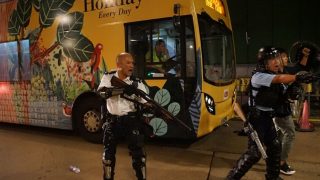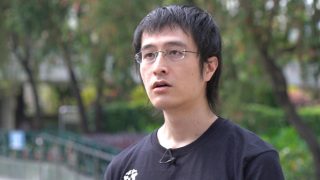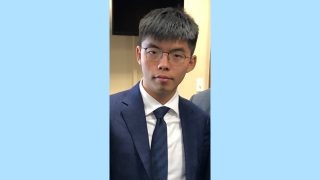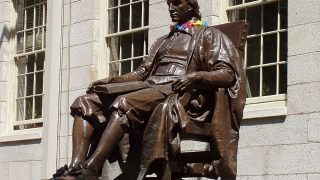Hong Kong’s top leader, Carrie Lam, announced Friday that the city’s September legislative election would be postponed for a year, citing the coronavirus pandemic. The decision dealt a blow to the pro-democracy camp, which was widely expected to score a victory in the election.
“To delay the Legislative Council election is a very difficult decision, but to suppress the pandemic and to safeguard public health while ensuring that the election is held in an open and fair manner … this decision is necessary,” she said at a news conference, adding that she was using a colonial-era emergency law as her basis for the action.
‘No political considerations’
Lam pointed to the record numbers of new coronavirus cases reported in recent days and maintained that there were “absolutely no political considerations” behind the delay.
Critics, however, said officials were nervous about the possibility of pro-democracy candidates scoring a victory amid deep-seated anti-government sentiment and concerns about a draconian national security law imposed by Beijing.
Observers said the postponement was the latest in a series of recent moves by the government to thwart the pro-democracy movement. This past week saw the firing of two pro-democracy academics active in politics, the arrests of four young activists on national security charges and the disqualification of 12 pro-democracy candidates for the legislative election.
Lam said the authorities would ask China’s National People’s Congress Standing Committee to decide how to fill the vacuum due to the delay. If it decides to extend the term of the current legislature, the fate of four serving lawmakers would be unknown because they were among the 12 candidates whose nominations have been invalidated.
Authorities have repeatedly accused the opposition lawmakers of “obstructing” the work of the government by vetoing unpopular bills. The national security law, enacted July 1, makes “serious interference, obstruction or damage” to the exercise of government power a subversion offense punishable by three to 10 years in prison or, in serious cases, life imprisonment.
Separately, 22 pro-democracy lawmakers accused the government of failing to contain the coronavirus pandemic and now using it as an excuse to delay the poll and “brutally rob the citizens’ voting rights.” In a statement, they said the action would pose a constitutional crisis that shakes the basis of Hong Kong’s fundamental political system.
‘Devastating defeat’
Commenting earlier in the week about the widely expected delay, pro-democracy lawmaker Eddie Chu wrote on his Twitter account that authorities wanted to “avoid a potential devastating defeat.”
The national security law and the crackdown on the pro-democracy camp make it hard to know what to expect in a year’s time, said Joseph Cheng, a retired political scientist formerly with the City University of Hong Kong.
“The postponement of the elections certainly destroys the pro-democracy movement’s trend of securing a majority in the legislature,” he said.
“The major challenge at this stage is whether the opposition political activists are still meaningful and useful. This would be the question in the minds of pro-democracy supporters,” he said. “These events are very disheartening for the pro-democracy movement.”
Many Hong Kongers say the delay has further alienated them from the government. “It is yet another example of the government using the pandemic as an excuse to achieve Beijing’s political ends,” said a 22-year-old student who identified himself as Benjamin.
“I think it’s very dangerous to mobilize a draconian colonial-era emergency law to arbitrarily impose all kinds of restrictions. I think the government will only increasingly resort to using this law,” he added.
China’s liaison office said in a statement Thursday that it supported the disqualifications, singling out activist Joshua Wong, 23, and lawyer Dennis Kwok. It alleged that they have advocated independence, lobbied “foreign powers to place sanctions on Hong Kong,” and vetoed government budget plans in order to paralyze the government and oppose the security law.
Wong said the election office told him that he had been disqualified because he used the word “draconian” to describe the security law and that his remark showed his opposition to it. He said the election office alleged that in light of his remarks, he could not possibly uphold the city’s constitution, known as the Basic Law, which is a prerequisite for a legislative candidate.
“Beijing shows a total disregard for the will of Hong Kongers, tramples upon the city’s last pillar of vanishing autonomy and attempts to keep Hong Kong’s legislature under its firm grip,” Wong said.
Source: VOA



